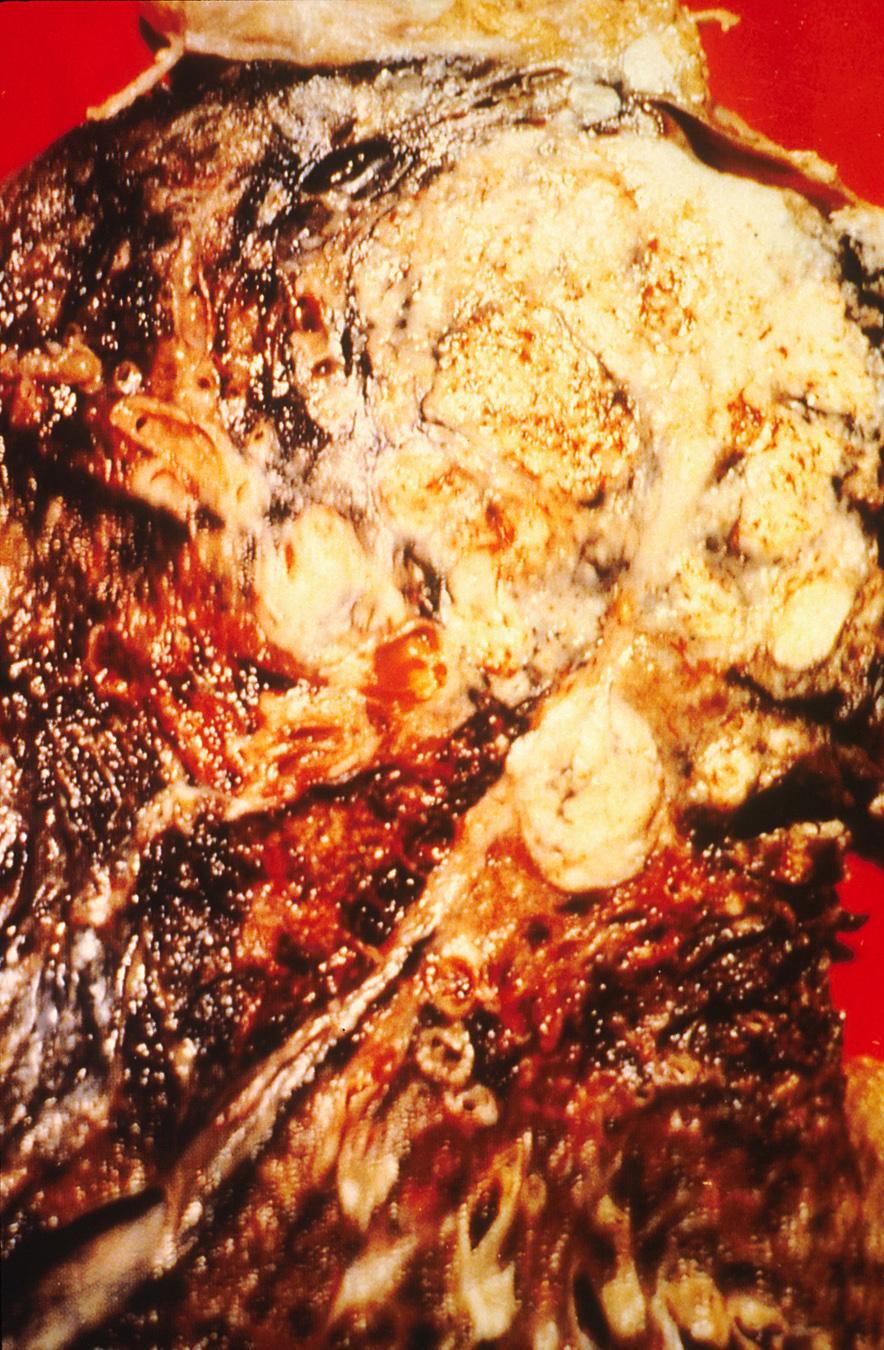"Inoperable" lung cancer: what does it mean?
Every year in France, approximately 40,000 new cases of lung cancer are diagnosed. Tuesday January 25, 2022, Florent Pagny announced that he had this disease. "I have just been diagnosed with a lung tumor, a not very sympathetic cancerous tumor that cannot be operated on," he explained in a video posted on his social networks. The singer then added that he was entering "a six-month protocol of chemotherapy and x-rays".
But what is an inoperable tumour? To understand it, it is first necessary to recall the different types and stages of lung cancer, with Dr. Radj Gervais, pneumo-oncologist at the François Baclesse Cancer Center in Caen (CLCC).
Cancer that can be operated or not: the importance of the type of cancer and the stage
There are two types of lung cancer: small cell cancer, which accounts for approximately 15% of lung cancers according to the National Cancer Institute (Inca) and non-small cell cancer, also called large cell cancer, which accounts for approximately 85% of lung cancers.
A received idea persists as to the prognosis associated with each of these types of cancer: that according to which "the small cell type would have a bad prognosis, while the large cell type could be cured. In reality, everything depends on the stage of the cancer. cancer", rectifies Dr. Radj Gervais.
The pneumo-oncologist summarizes the different stages of lung cancer using the following terms: "localized", "locally advanced" and "metastatic". Whether a cancer is operable or not depends on the type of cancer, but also on its stage. So, in which cases do we speak of “unoperable” cancer?
Lung cancer: in which cases is it "unoperable"?
Small cell lung cancer has the particularity of spreading faster than large cell lung cancer. “We realized that it was not necessary to operate, because even if we do not see metastases during the examinations, there are surely some”, explains Dr. Radj Gervais. Treatment is therefore based on chemotherapy and radiotherapy.

-At the "localized" stage
At this stage, the tumor is localized and an operation can be performed when it is "resectable", in other words it can be completely removed. "If the surgeon removes 99% of the tumor but leaves 1%, it's almost as if nothing had been done", specifies the pneumo-oncologist.
The performance of the operation does not only depend on the tumour, but also on the patient: the latter must be "operable". "We know: lung cancer is mainly due to tobacco consumption, which is also the cause of pulmonary emphysema or even heart problems. However, even in the case of localized cancer, a smoking patient who suffers from a emphysema will not necessarily support the operation”, explains the pneumo-oncologist.
Surgery can therefore only be considered if the tumor is resectable and the patient is operable. If the latter is not, radiotherapy can be put in place.
-At the "locally advanced" stage
At this stage, the tumor has not spread outside the thorax but has grown significantly locally, which means that the surgeon cannot remove it entirely. An operation is therefore not possible, but radiotherapy and chemotherapy can be implemented. "If the chemotherapy and the rays make it possible to reduce the tumor, an operation may possibly take place in a second step, but this is rare", specifies the pneumo-oncologist. Subsequently, immunotherapy can also be put in place to consolidate the results of the treatments.
-At the "metastatic" stage
At this stage, the cancer has started in the lung and has metastasized. It is not possible to operate: “only drugs can act, namely intravenous chemotherapy, immunotherapy administered by infusion as well as oral targeted therapy”. The goal? Block cancer.
Advances in lung cancer treatments
Over the past twenty years, advances have been made in cancer treatments. “Before, the only option to treat metastatic large cell lung cancer was chemotherapy, a toxic and not always effective drug,” explains the pneumo-oncologist. Targeted therapies, which therefore make it possible to target abnormalities in cancer cells, then appeared, followed by immunotherapy, which awakens the patient's immunity so that it turns against the cancer. "Thanks to immunotherapy, we are starting to talk about a cure in some cases, which was impossible a few years ago with metastatic lung cancer", notes Dr. Radj Gervais.
The best way to fight against this disease remains prevention, however, because 90% of lung cancers are linked to tobacco consumption. Screening also saves lives, as it allows earlier diagnosis and better management. “The ideal would be to set up systematic screening for people who have smoked and a real prevention strategy for others,” concludes the pneumo-oncologist.
Thank you to Dr. Radj Gervais, pneumo-oncologist at the Center for the fight against cancer François Baclesse in Caen (CLCC) and to Unicancer, network of Centers for the fight against cancer.
Also read:
⋙ Lung cancer: why the number of cases is exploding in women
⋙ Lung cancer: non-smokers twice as affected as 20 years ago, the alert of pulmonologists
⋙ Lung cancer: why it's never too late to quit smoking
Eudaemonism: all about this philosophy of happiness
GO
How Danielle Collins became a champion again despite having endometriosis
GO
Seven cases of COVID-19 are added to the regional balance sheet of Gaspésie
GO
Effects of palm oil on health: what are the dangers?
GO